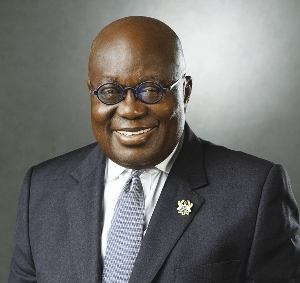- Home - News
- TWI News | TV
- Polls
- Year In Review
- News Archive
- Crime & Punishment
- Politics
- Regional
- Editorial
- Health
- Ghanaians Abroad
- Tabloid
- Africa
- Religion
- Election 2020
- Coronavirus
- News Videos | TV
- Photo Archives
- News Headlines
- Press Release
General News of Friday, 6 November 2009
Source: GYE NYAME CONCORD
Why SFO Began Vodafone Probe
THE NEWS THAT the Serious Fraud office of the UK has began scrutinising Vodafone’s UK’s acquisition of Ghana Telecom either came as a surprise or a welcome sweetener depending on where you stand on the now controversial Justice Emmanuel Akwei Addo Committee report on Vodafone. But what many do not know is that it wasn’t the new UK SFO Director Richard Alderman’s own insight that led to the hunch to double-check the books of Vodafone Ghana.
That hunch was served on his dinner plate by the equally new Executive-Director of the SFO Ghana, Mr Kweku Mortey Akpadzi and his Ghanaian staff, who began combing various offices with a mandate on the telecom industry and which played various roles in the sale and acquisition of Vodafone Ghana.
Sources say the SFO first swept through the offices of the Totobi Quakyi-chaired National Communications Authority (NCA), sniffing through documents connected to the dogged deal.
Next stops were the Ghana Investments Promotion Centre (GIPC) and the books of the Divestiture Implementation Committee (DIC), whey they combed the books with a view of finding out the truth; nothing but the truth on the Vodafone deal.
Having gathered what in the words of lawyers constitute a prima facie case to begin with, the SFO quietly made a move to engage their counterpart organisation in the UK in the area of recovery of certain documentation and information on the issue.
Convinced of the case made before them, Alderman’s office in the UK quickly contacted Vodafone about its now controversial deal to buy the 70 per cent controlling stake in Ghana’s third-largest mobile phone operator.
While Richard Alderman is reported to have spoken by telephone with Stephen Scott, Vodafone’s head of legal affairs, last week about the Ghanaian deal, the SFO says it has not formally began investigation the matter.
It is however monitoring allegations of irregularity that have been made in Ghana and may move to conduct full investigations if the situation warrants, it says.
Mr Scott, when asked by Mr Alderman if the allegations were true, is reported to have insisted that Vodafone acted entirely properly when concluding a transaction with Ghana’s government in July last year to buy the 70 per cent stake in Ghana Telecom.
Vodafone said: “We are confident the transaction was conducted to the highest standards of corporate governance.”
The Vodafone deal, which was opposed by the ruling Mills-led NDC administration a little over a year ago, has become a topical knot to untie, with many Ghanaians waiting for the government’s next move after the three-member Akwei Addo Committee established by the Ministry of Communications to probe the deal presented its report.
Among the recommendation is that the contract is illegal and ought to be abrogated or re-negotiated.
The report claimed that most of the terms of the sale agreement with Vodafone were “inimical to Ghana’s interest”.
“The government of Ghana did not get value for money from the sale,” said the report.
It also noted how Ghana’s government, before it took office, alleged that the transaction was “fraught with irregularity”.
Critics have, however, questioned the basis of the Committee’s findings, with the Minister who set up the Committee initially distancing government from the report by insisting that the Committee had no mandate to veer into some of the areas it went to.
Though both Vodafone and the immediate past Ghana government said in July last year that the UK company acquired the 70 per cent stake in Ghana Telecom “for a total consideration of $900m (£549m) on a debt-free, cash-free basis”, the Ministerial Committee’s report said because of “a series of complicated financial arrangements”, the Government only received $266.6m under the sales and purchase agreement.
The conclusion of the Committee on how much came into government’ coffers has, however, been described in very uncharitable terms as ‘voodoo mathematics” by critics.










